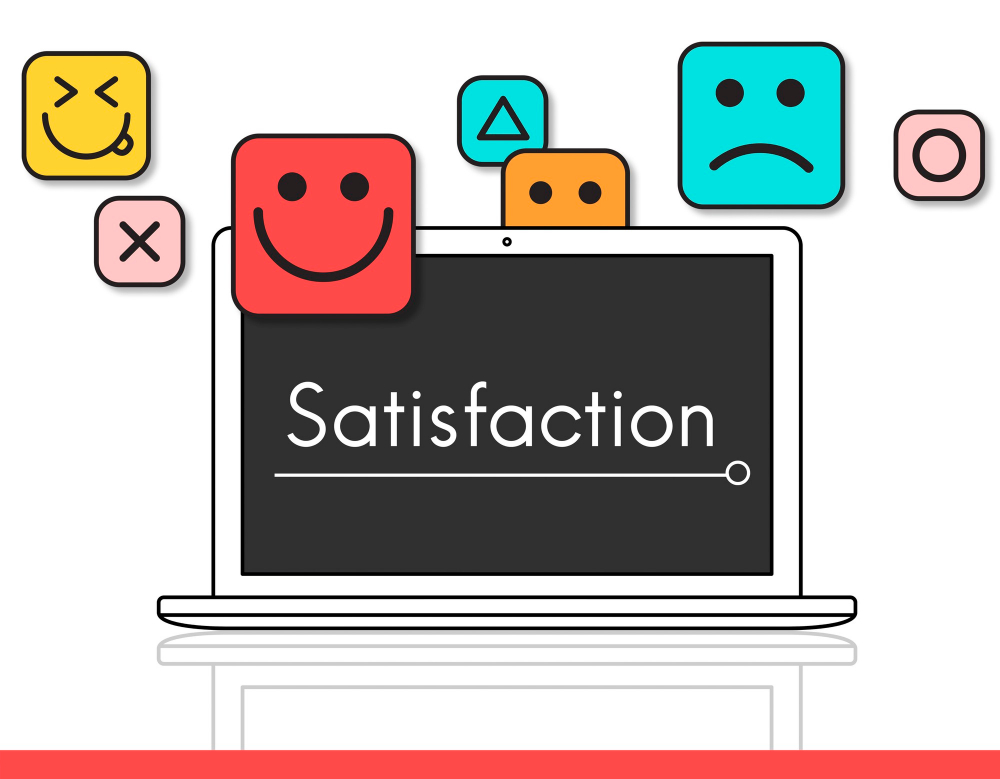When people search for a brand, product, or service, what they see on the first page of results often becomes their instant judgment. A few negative reviews mixed among positive ones can dramatically change perception, even if the criticism is outdated, misleading, or exaggerated. Business owners, marketers, and founders frequently realize this only after noticing declining inquiries or hesitation from potential customers. This is where Negative Review Suppression becomes a topic of serious interest, not as a shortcut to hide feedback, but as a structured way to manage online perception responsibly and strategically.
Understanding Negative Review Suppression requires moving beyond emotional reactions to criticism and instead looking at reputation as a measurable digital asset. This blog breaks down how review suppression works, what factors influence its effectiveness, and the options available for brands that want to improve their online standing. You will gain clarity on methods, platforms, risks, and best practices while also learning how professional reputation management services like those offered by Aiplex ORM can support long-term brand credibility. If your business visibility matters, this information will help you make informed decisions.
Key Factors to Understand Before Negative Review Suppression
Before exploring methods or tools, it is essential to understand the foundational elements that shape how Negative Review Suppression works. Reviews are not isolated pieces of content; they are part of a larger ecosystem involving search engines, review platforms, user behavior, and trust signals. This section outlines the most important factors you must evaluate before choosing any suppression strategy. Each factor directly affects outcomes, timelines, and sustainability.
Review Platform Algorithms and Policies
Every review platform operates under its own algorithm and moderation rules, which directly affect how visible negative feedback becomes. Platforms like Google Business Profile, Trustpilot, Yelp, and industry-specific directories prioritize reviews differently based on recency, engagement, and reviewer credibility. Understanding these mechanics is critical for effective Negative Review Suppression because suppression relies on influencing visibility, not removing content arbitrarily. Without clarity on platform behavior, efforts can be misdirected or ineffective.
In addition to algorithms, platform policies determine what qualifies for removal or reporting. Some negative reviews may violate guidelines due to spam, conflicts of interest, or abusive language. Recognizing these distinctions allows businesses to act strategically rather than emotionally. Professional review suppression strategies always align with platform rules, ensuring that reputation improvement efforts remain compliant and sustainable over time.
Search Engine Impact on Brand Perception
Search engines play a central role in how reviews shape public perception. Negative reviews often rank not only on review platforms but also in branded search results. This amplifies their impact, especially when potential customers research a business before making decisions. Negative Review Suppression considers how reviews appear in search snippets, local packs, and organic listings, making search visibility a key factor.
Search engine optimization and review management are closely connected. By understanding how search engines interpret review signals, businesses can prioritize content and engagement strategies that push positive narratives forward. This does not erase criticism but balances it with accurate, updated, and high-quality information that reflects the current state of the business.
Volume, Recency, and Review Trends
The overall volume and timing of reviews significantly influence suppression outcomes. A single negative review among hundreds of recent positive ones has minimal impact, while a cluster of recent negative feedback can dominate perception. Negative Review Suppression strategies analyze patterns rather than isolated comments, focusing on long-term trends instead of short-term reactions.
Recency matters because platforms often highlight the latest reviews. Encouraging genuine, recent feedback from satisfied customers naturally reduces the prominence of older negative reviews. Understanding these dynamics helps businesses set realistic expectations and choose strategies that focus on consistency rather than quick fixes.
Legal and Ethical Boundaries
Ethical considerations are often overlooked when discussing Negative Review Suppression. Suppression does not mean fabricating reviews or silencing honest customer experiences. Ethical suppression respects transparency, platform guidelines, and consumer trust. Ignoring these boundaries can result in penalties, account suspensions, or long-term brand damage.
Legal risks also exist, especially when attempting to remove reviews through intimidation or false claims. A responsible approach focuses on lawful reporting, response management, and reputation building. Businesses that prioritize ethics protect not only their online image but also their credibility and customer relationships.
Business Readiness and Internal Processes
Internal readiness plays a major role in the success of Negative Review Suppression. If underlying service or product issues remain unresolved, suppression efforts will only provide temporary relief. Reviews reflect real experiences, and ignoring operational improvements weakens any reputation strategy.
Businesses that align internal quality control with external reputation management see better results. Clear communication, customer support processes, and feedback loops strengthen suppression efforts by ensuring future reviews trend positively. This alignment turns review management into a continuous improvement system rather than a reactive tactic.
Common Methods Used in Negative Review Suppression
Negative Review Suppression involves multiple methods, each suited to different situations and goals. These methods focus on reducing the visibility and influence of negative reviews while strengthening positive digital signals. Understanding these options helps businesses choose an approach aligned with their brand values and risk tolerance.
Encouraging Authentic Positive Reviews
One of the most effective suppression methods is increasing the volume of genuine positive reviews. When satisfied customers share their experiences, negative reviews naturally lose prominence. This approach supports Negative Review Suppression by shifting overall sentiment rather than manipulating individual feedback.
Structured review generation campaigns help businesses collect feedback at the right time and on the right platforms. Authenticity is critical, as platforms detect unnatural patterns. A steady flow of real positive reviews builds trust with both algorithms and audiences, reinforcing long-term reputation stability.
Strategic Review Responses
Responding to negative reviews professionally can reduce their impact. Public responses demonstrate accountability, transparency, and willingness to improve, which can neutralize criticism in the eyes of potential customers. Negative Review Suppression includes response management as a visibility and trust-building tool.
Well-crafted responses also signal to platforms that a business is active and engaged. This engagement can influence how reviews are ranked and displayed. Over time, consistent responses help reposition negative feedback as part of a constructive dialogue rather than a defining narrative.
Reporting Policy-Violating Reviews
Not all negative reviews are legitimate. Some violate platform policies due to spam, fake accounts, or inappropriate language. Identifying and reporting these reviews is a valid component of Negative Review Suppression when done correctly and transparently.
Successful reporting requires documentation and patience. Platforms review cases based on evidence, not emotional appeals. While not all reports lead to removal, consistent and accurate reporting helps maintain review integrity and reduces the presence of harmful or misleading content.
Content and Search Result Optimization
Content creation plays a powerful role in suppression strategies. Publishing authoritative, branded content helps push negative results lower in search rankings. Blogs, press mentions, profiles, and social assets contribute to a stronger digital footprint that supports Negative Review Suppression.
Search result optimization ensures that when users search for a brand, they encounter balanced and accurate information. This method focuses on prominence rather than removal, making it both ethical and sustainable for long-term reputation management.
Professional Reputation Management Services
Many businesses choose professional services to manage Negative Review Suppression due to complexity and scale. These services combine analytics, platform expertise, and strategic planning to deliver measurable outcomes. Outsourcing allows internal teams to focus on operations while experts handle reputation risks.
Professional services also provide monitoring, reporting, and continuous optimization. This ensures that suppression strategies evolve alongside platform changes and market dynamics, maintaining consistent brand perception across channels.
Why Choose Aiplex ORM for Negative Review Suppression
Aiplex ORM approaches Negative Review Suppression with a structured, ethical, and data-driven methodology. Instead of focusing on short-term tactics, the company emphasizes sustainable reputation growth through platform-compliant strategies. Their experience across industries allows them to tailor suppression approaches based on business size, market, and review landscape.
By combining review management, content optimization, and continuous monitoring, Aiplex ORM helps brands regain control over online narratives. Their transparent processes and measurable reporting ensure clients understand progress and outcomes at every stage. This makes them a reliable partner for businesses seeking long-term reputation resilience.
Conclusion
Negative Review Suppression is not about hiding criticism but about managing visibility, context, and credibility in a digital-first environment. Reviews influence trust, conversions, and brand equity, making proactive reputation management essential for modern businesses. When approached strategically, suppression balances honest feedback with accurate representation.
By understanding platforms, ethics, and available methods, businesses can make informed decisions that protect their reputation without compromising integrity. Partnering with experienced professionals like Aiplex ORM further strengthens these efforts, ensuring that online perception aligns with real-world value and long-term business goals.






